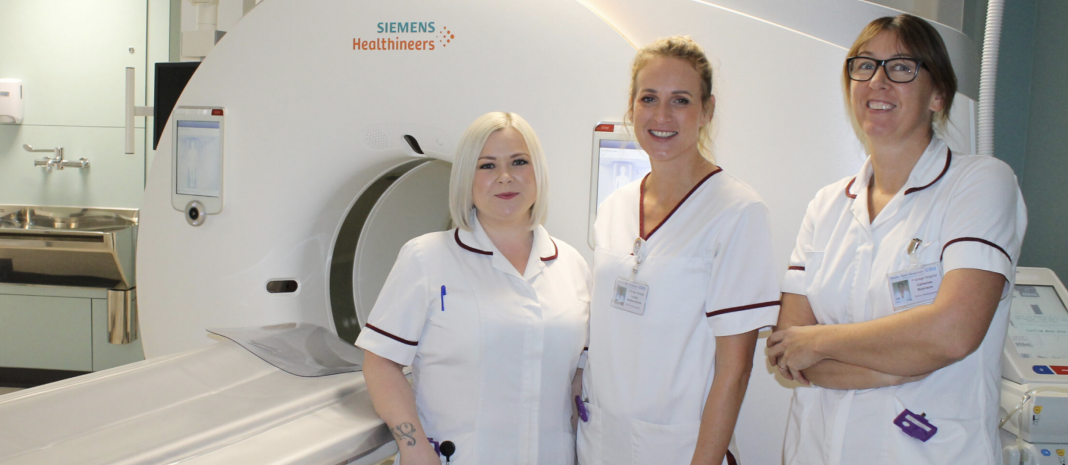Northallerton’s Friarage Hospital can now scan 100 more patients every week, following a £3m revamp of part of their radiology department.
Sewell Group’s Community Ventures team, based at Thorpe Park in Leeds, managed delivery of the scheme for South Tees Hospitals NHS Foundation Trust, which was part of a national programme to deliver clinical diagnostic services closer to patients’ homes.
The 15-month project saw the old radiology block transformed into a modern hospital department, creating a spoke site for the Tees Valley Clinical Diagnostic Centre programme, which also includes sites in Stockton, Hartlepool, and Redcar.
Community Ventures worked with multiple stakeholders to arrive at the design solution for the new facility, applied for funding to develop the scheme, delivered it in a live hospital environment and coordinated the transfer of clinical services to alternative locations – including a mobile CT scanner in the car park – whilst the works were ongoing.
The result is a state-of-the-art facility, with two CT scanners, including a new £900,000 machine, viewing rooms, a new cannulation room, two new ultrasound rooms and a new dental scan room, as well as changing facilities and an accessible toilet.
As well as giving extra capacity for patients to be seen, helping reduce waiting times and improving health outcomes for patients, the facilities will enable more heart patients to undergo scans at the Friarage, instead of having to travel to other hospitals.
Kelly Smith, head of radiology at South Tees said: “This is fantastic news for our patients across Hambleton, Richmondshire and beyond who will benefit from faster imaging and access to more diagnostic appointments closer to home.
“The new scanner is the highest specification scanner we have got across the whole department and it’s great to see it benefitting our Friarage patients.”
Scott Clarkson of Community Ventures, who project managed the scheme whilst seconded into the Trust’s Capital Projects department, said: “This was anything but a straightforward project, but the results have been amazing to see.
“Arranging the removal of two X-ray machines and the temporary storage of a CT scanner during the works wasn’t easy, but the staff in the department showed incredible flexibility and willingness to adapt during the delivery of the works.
“The scheme is now delivering a significant increase in diagnostics capacity in the region, and knowing that the end result of our work will save so many lives really makes it all worthwhile.”



